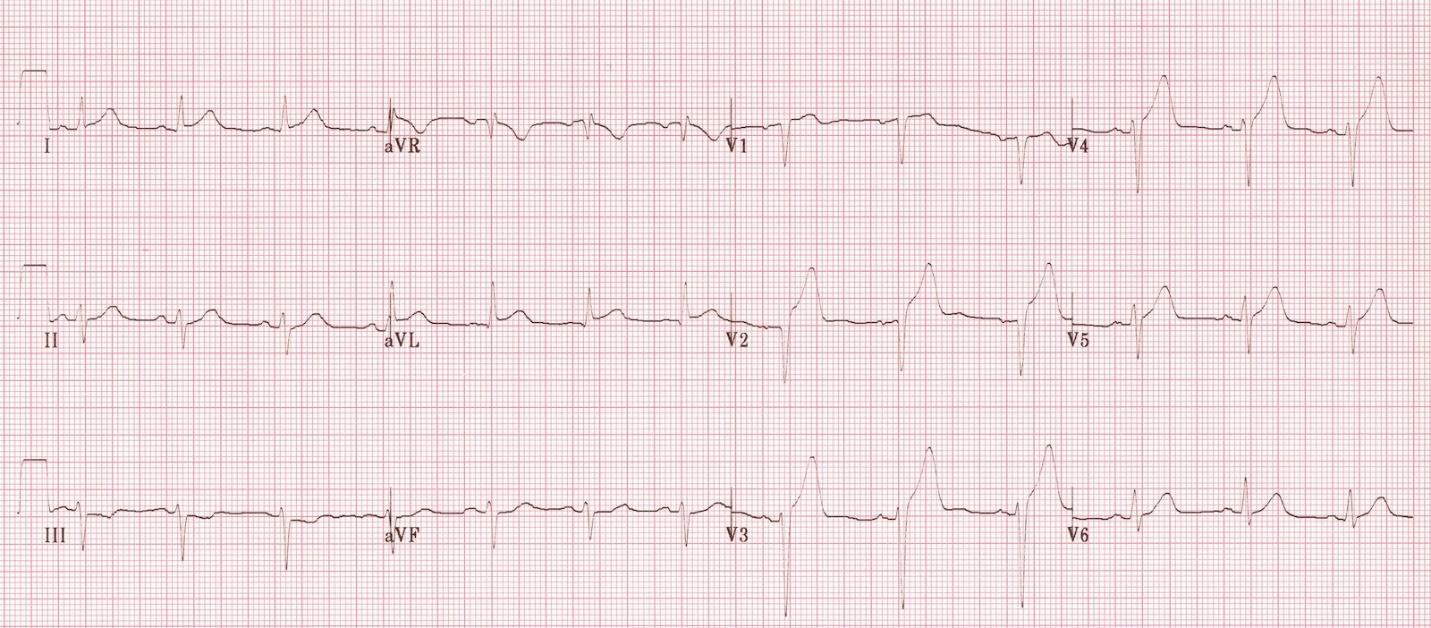Stroke Flashcard 7
Rationale
A. Rationale: Patients with atrial fibrillation are at increased risk of stroke. In atrial fibrillation, the atria quiver ineffectively, which may lead to blood clot formation within the atria. Should the rhythm convert, even momentarily, the blood clot may then be forced into circulation, where it can make its way to the brain. This is why patients who have been in atrial fibrillation longer than 48 hours are often anticoagulated prior to being converted.
Question
Which one of the following arrhythmias is most likely to precipitate a stroke?
A. Atrial fibrillation
B. Ventricular fibrillation
C. Ventricular tachycardia
D. Sinus tachycardia
Answer
A. Atrial fibrillation
Rationale
D. Rationale: The signs of stroke include trouble speaking or understanding, the acute onset of confusion, and sudden severe headache with no known cause, among others. The healthcare provider must recognize the signs and symptoms of a potential stroke early because its successful management is time-dependent.
Question
Which one of the following choices is NOT a warning sign or symptom of stroke?
a. Abrupt confusion
b. Trouble understanding or speaking
c. Severe headache
d. Palpitations
Answer
d. Palpitations
Rationale
B. Rationale: Fibrinolytic therapy is contraindicated for patients with hemorrhagic stroke. This is diagnosed with the help of a CT scan of the head.
Question
Which one of the following is an absolute contraindication to a fibrinolytic approach for the treatment of stroke?

a. Clinical signs of a stroke (facial droop, abnormal speech, motor weakness)
b. Radiologic evaluation of the brain showing hemorrhage
c. Systolic blood pressure of 180 mm Hg or less
d. Onset of symptoms < 3 hours before beginning treatment
Answer
b. Radiologic evaluation of the brain showing hemorrhage
Rationale
A. Rationale: Studies have shown that ischemic stroke occurs in 85% of patients with acute stroke. This is followed by 10% with hemorrhagic intracerebral stroke and 3% with hemorrhagic subarachnoid stroke.
Question
Which one of the following is the most common cause of acute stroke?
a. Ischemic
b. Hemorrhagic
c. Subarachnoid
d. Intracerebral
Answer
a. Ischemic
Rationale
B. Rationale: The Cincinnati Prehospital Stroke Scale is a crude but useful tool to assist first responders in diagnosing stroke in one minute. It includes facial droop, arm drift, and abnormal speech tests. The American Heart Association recommends that all EMS personnel be adept ta using such tools.
Question
Which one of the following tests is NOT part of the Cincinnati Prehospital Stroke Scale?

a. Facial droop test
b. Finger to nose test
c. Arm drift test
d. Abnormal speech test
Answer
b. Finger to nose test
Rationale
D. Rationale: The decision point in the treatment of an acute stroke is whether it is a hemorrhagic or ischemic stroke. A patient with a hemorrhagic stroke will need evacuation of the hematoma by neurosurgery. A patient with ischemic stroke can be treated medically with the use of a fibrinolytic. A CT scan of the head can determine with excellent accuracy if the patient has a hemorrhagic or ischemic stroke.
Question
Which one of the following tests is the most important to use in the acute stroke algorithm?
a. MRI of the head with contrast
b. PET-CT scan of the head with contrast
c. CT scan of the head with contrast
d. Clinical history and complete neurologic examination
Answer
d. Clinical history and complete neurologic examination